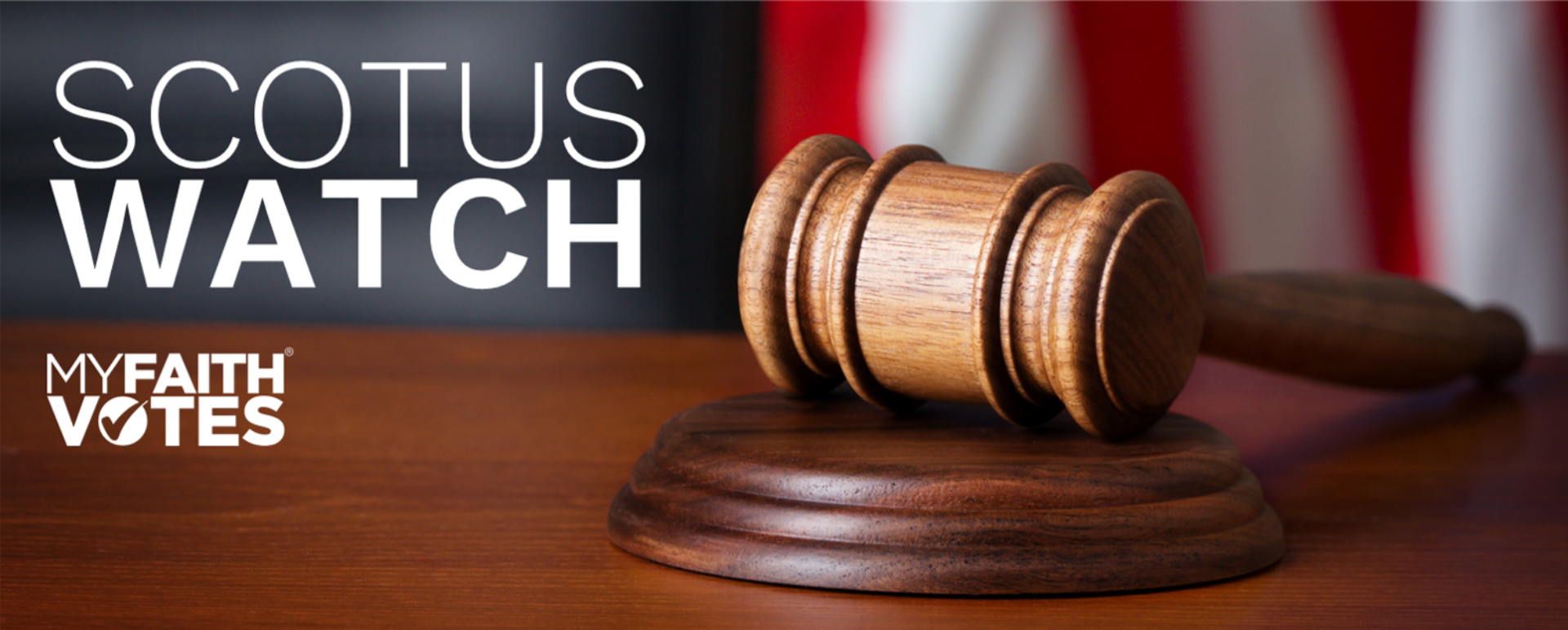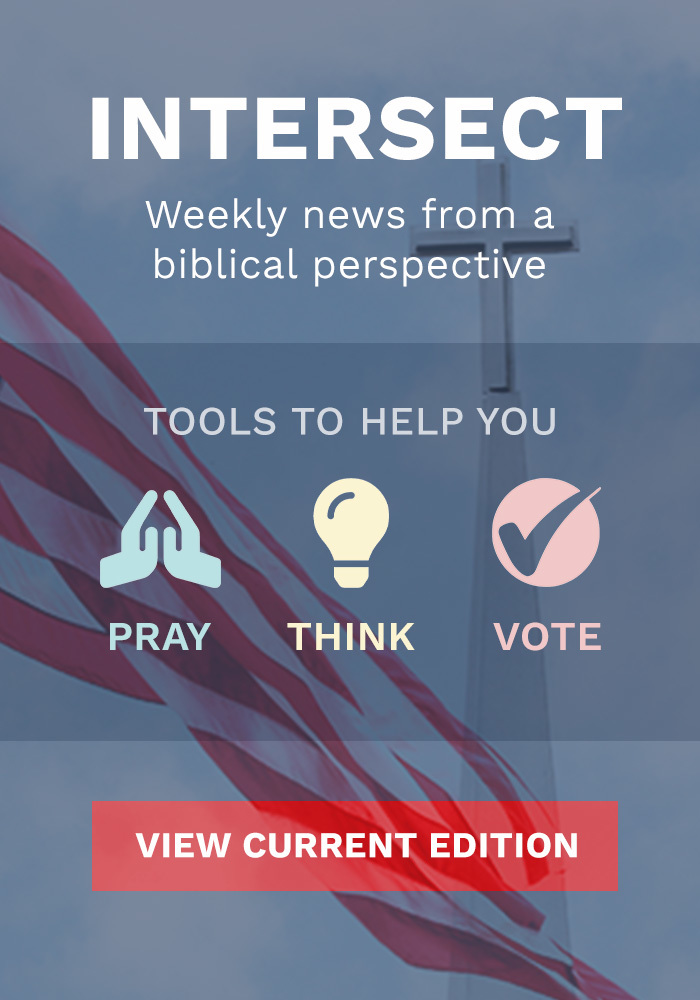
SCOTUS Watch | Feb 21, 2020
The Supreme Court will hear a total of nine cases between February 24 - March 4, 2020. The cases relate to subjects such as restricting abortion, immigration, and the separation of powers, among others.
Here are three cases this month that are worth noting:
- June Medical Services v. Russo, Interim Secretary Labor Department of Health
Russo, Interim Secretary Labor Department of Health v. June Medical Service - United States v. Sineng-Smith
- Seila Law LLC v. Consumer Protection Bureau
June Medical Services v. Russo, Interim Secretary Labor Department of Health
Russo, Interim Secretary Labor Department of Health v. June Medical Service
This consolidated case before the U.S. Supreme Court includes two different cases involving the same parties. In June 2014, Act 620 became Louisiana law. The law requires doctors conducting abortions to have admitting privileges at a hospital within 30 miles of the abortion facility. The doctors must be able to provide surgical and diagnostic services at the hospital. The law’s purpose was to bring abortionists under the same requirements as other doctors in ambulatory surgical centers, to ensure all abortionists have proper credentials to conduct an abortion and to help women receive adequate care.
Two months after Act 620 became law, June Medical Services, along with others, filed a lawsuit claiming the law was unconstitutional because it placed an “undue burden on women’s right to choose abortion before viability.” In January 2019, after a five-year series of legal proceedings, the U.S. Court of Appeals for the Fifth Circuit denied a petition to hear the case en banc after the Fifth Circuit on appeal in September 2018 had reversed an earlier federal district court ruling stating the law was unconstitutional. A petition was then filed in April 2019 by June Medical Services to the U.S. Supreme Court. In October 2019, the U.S. Supreme Court agreed to hear the case to determine whether the Fifth Circuit Court’s decision to uphold Act 620 is constitutional. In 2016, while this lawsuit was ongoing, the U.S. Supreme Court declared a similar Texas law unconstitutional in Whole Woman’s Health v. Hellerstedt.
Louisiana opposed the June Medical Services petition. An amicus brief in January 2020 was issued to the U.S. Supreme Court in support of the Louisiana Health Secretary. More than 200 members of Congress said that abortion providers should not bring lawsuits on behalf of patients, that the Fifth Circuit ruling should stand, and that past precedents should be reconsidered.
If the U.S. Supreme Court upholds this Louisiana law, it will be a major win for the unborn and the pro-life movement. This case will have a significant impact on the interpretation of future abortion cases.
The central question in this case: Is it unconstitutional that doctors conducting abortions be required to have admitting privileges and be able to do surgical and diagnostic services at a hospital within 30 miles of the abortion facility? Oral arguments for this case will be heard on March 4, 2020.
United States v. Sineneng-Smith
Evelyn Sineneng-Smith is a law school graduate, but not a licensed attorney, who was convicted of mail fraud for inducing illegal immigrants for financial gain. She ran an immigration consulting firm in California, New York, and Las Vegas for nearly 20 years. One of the services she offered was helping illegal citizens adjust their legal status under Section 245(i) of the INA to obtain green cards while physically already in the United States. This process poses a problem because noncitizens bypass applying for a visa at a U.S. consulate overseas; and non-citizens residing in the U.S. illegally are prohibited from obtaining visas. Two-thousand of Sineneng-Smith’s clients never received a green card. The law currently imposes criminal penalties on any person who “encourages or induces an alien to come to, enter, or reside in the United States, knowing or in reckless disregard of the fact that such coming to, entry, or residence in is or will be in violation of law.” The North District of California found Sineneng-Smith guilty of breaking this law and sentenced her. However, the U.S. Ninth Circuit Court of Appeals reversed the convictions and found that the statute is constitutionally overbroad. The case is now before the U.S. Supreme Court to decide and its decision will be very significant to immigration law in our nation today.
The central question in this case: Whether the federal criminal prohibition against encouraging or inducing illegal immigration for commercial advantage or private financial gain, in violation of 8 U.S.C. 1324(a)(1)(A)(iv) and (B)(i), is facially unconstitutional. Oral arguments for this case will be heard on February 25, 2020.
Seila Law LLC v. Consumer Protection Bureau
The ruling, in this case, will determine if the Consumer Financial Protection Bureau is constitutional. The bureau regulates banks and other financial companies providing services to consumers. The independent agency was created back in 2010, and Congress established it to be headed by a single director who is protected from at-will termination by the president of the United States. This means that the president cannot remove the director except “for cause” that is, “inefficiency, neglect of duty, or malfeasance in office.” A California law firm, Seila Law, sued the federal government, arguing Congress violated the separation of powers by granting the director of the bureau tremendous power without making him directly accountable to the president. Both the U.S. Court of Appeals for the 9th Circuit and the U.S. Court of Appeals for the District of Columbia Circuit upheld the bureau’s structure. They ruled that the “for-cause” removal restriction would not ultimately prohibit the president from ensuring the laws are executed.
Justice Brett Kavanaugh was on the Court of Appeals for the District of Columbia Circuit at the time the case was reviewed and he dissented in his decision. He made the powerful statement, “other than the president, the director of the Consumer Financial Protection Bureau is the single most powerful official in the entire U.S. government, at least when measured in terms of unilateral power.”
In an interesting turn of events, the bureau has changed their argument since arguing in the lower courts and is now in agreement that the structure of the bureau is unconstitutional and they are arguing for the “for-cause” clause to be eliminated, but for the agency to remain intact. However, as we know, this will be for the Supreme Court to decide. Many believe the agency as it stands now, directly violates the separation of powers.
The central question in this case: Whether the vesting of substantial executive authority in the Consumer Financial Protection Bureau, an independent agency led by a single director, violates the separation of powers. (2) If the Consumer Financial Protection Bureau is found unconstitutional on the basis of the separation of powers, can 12 U.S.C. §5491(c)(3) be severed from the Dodd-Frank Act? Oral arguments for this case will be heard on March 3, 2020.
Please continue to pray for our Supreme Court Justices this month. Also, please pray for the unborn--those who can’t speak for themselves. Pray specifically for the June Medical Services v. Russo, Interim Sec., LA Dept. of Health case being heard by the U.S. Supreme Court on March 4, 2020.
The following Scripture reminds us that we are each intricately made and that God knew us before we were conceived. We encourage you to pray that God’s truth becomes the reality in our nation and around the world.
“For You formed my inward parts; You wove me in my mother’s womb. I will give thanks to You, for I am fearfully and wonderfully made; Wonderful are Your works, and my soul knows it very well.”
Psalm 139:13-14
###
My Faith Votes— is a ministry that motivates, equips, and activates Christians in America to vote in every election, transforming our communities and influencing our nation with biblical truth. An estimated 25 million Christians who are registered to vote, fail to vote in presidential elections. My Faith Votes is on a mission to change this statistic by helping Christians act on their faith and vote in every election. When we pray unceasingly for our nation, think biblically about the issues, and vote consistently in every election the impact of Christians taking action from the local to the state and federal level will be unprecedented.
Website | www.myfaithvotes.org Twitter | @MyFaithVotes Facebook | My Faith Votes
